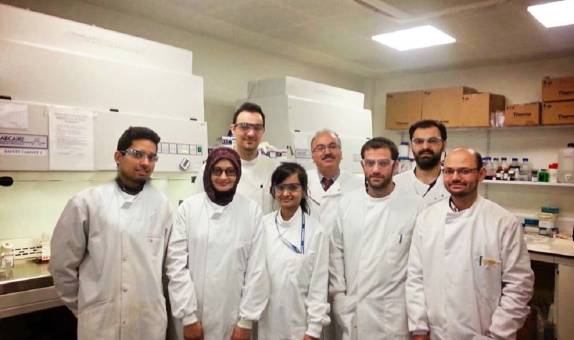Knowledge exchange at Kingston University
What is knowledge exchange?
Alongside training future talent, Higher Education Institutions play an important role in the prosperity of our economy and enrichment of society through collaborations and partnerships. Knowledge Exchange (KE) includes activities resulting from these two-way collaborations and partnerships that increase the impact of research outside of academia and allow sharing of experience, ideas, skills and resources that bring mutual benefit. Through the KERIs (Knowledge Exchange and Research institutes), Kingston University aims to deliver greater societal impact in line with our ambitious Town House Strategy, concentrated around our areas of excellence.
Below you can explore our collaborations and approach to knowledge exchange as well as the benefits of working with Kingston University.
Please get in touch if you have queries or would like to find out more.
Knowledge Exchange Framework (KEF)
The Knowledge Exchange Framework (KEF) was developed by Research England as a way of assessing how universities benefit society and the economy through the knowledge they create.
It evaluates universities across a number of perspectives and positions, each relative to other universities in a benchmark group (cluster). Evaluation is based on the following perspectives using a series of metrics.
- Intellectual property and commercialisation
- Local growth and regeneration
- Public and community engagement
- Research partnerships
- Skills, enterprise and entrepreneurship
- Working with business
- Working with the public and third sector
The 2021 results are the first to emerge from the newly-created framework. Kingston University is in the top 30% of its cluster in the Skills, Enterprise and Entrepreneurship principle, demonstrating its commitment to equipping our students and graduates with the knowledge and skills to create new businesses, jobs and wealth. It also stands in the top 50% of its cluster in Working with Business and Research Partnerships.
Read our projects and case studies for examples of the important work Kingston University is doing in knowledge exchange and its impact. Each case study reflects one of the perspectives of the KEF.
If you are interested in exploring collaborative opportunities and getting access to our academic expertise, student support or unique facilities, please get in touch.
Kingston University approaches to knowledge exchange
Kingston University is committed to the creation and sharing of knowledge that impacts its diverse stakeholders through the following approaches:
Benefits of doing Knowledge Exchange activities
Knowledge Exchange has mutual benefit both for the University and the partnering organisation, community members or participants.
Benefits for the external stakeholders are diverse. It can include access to knowledge, skills and facilities at a reduced fee or at times free, access to government funding that require HEI partners, access to cutting-edge research and laboratories that support business development and much more.
The benefits for the university include making a positive difference to society, testing research in practice, developing links with business and industry and gaining new ideas and insight that develop future research ideas and proposals.
Kingston University is committed to both increasing and enhancing knowledge exchange activity.

Knowledge Exchange projects and case studies
Kingston University collaborates on a number of strategic projects including the following.
Building Bridges: rehabilitation of people with complex disabilities
Demonstrating 'Intellectual property and commercialisation'.
Business Support Programmes
Demonstrating: 'Skills, enterprise and entrepreneurship'.
Commercial licensing of antibodies developed by Kingston University
Demonstrating 'Intellectual property and commercialisation'.
The Community Brain
Demonstrating 'Public and community engagement'.
ESCAPE Pain
Demonstrating 'Working with the public and third sector'.
HackCentre
Demonstrating 'Skills, enterprise and entrepreneurship'.
Not My Beautiful House
Demonstrating 'Public and community engagement'.
South London Partnership and BIG Programme (Business, Innovation & Growth)
Demonstrating 'Local growth and regeneration'.
Supporting Business Start-ups
Demonstrating 'Skills, enterprise and entrepreneurship'.
Women in Enterprise Network (KUWEN)
Demonstrating 'Working with business'.
Get in touch
Please contact us if you would like further information about knowledge exchange at Kingston University.
If you are interested in exploring collaborative opportunities and getting access to our academic expertise, student talent or unique facilities, please get in touch.












